Top 5 WA STEM Moments of 2022
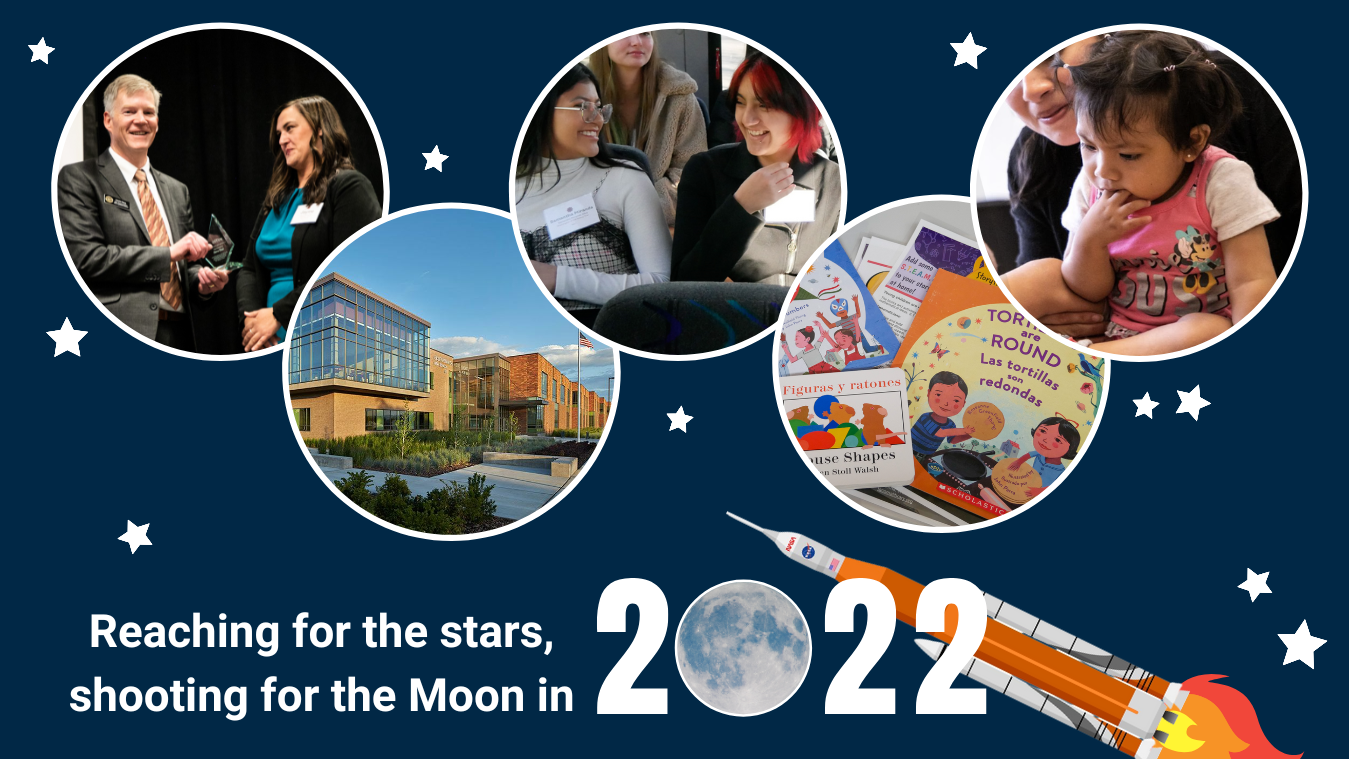
1) Dual credit legislation passed! 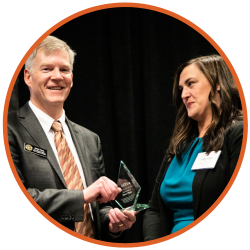
A big moment in 2022 was the passage of Dual Credit legislation to support courses and programs that help high school students take college level courses. This prepares them for higher education AND saves money. But our research showed that schools had little information about who was taking these courses—and who was not. This new legislation requires schools to track and report on students’ geographical location, income level, race, gender and other factors. This broader data will empower schools to help students overcome barriers to postsecondary college and career goals. Read more about Washington STEM’s upcoming 2023 legislative priorities.
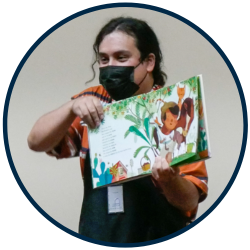
2) New ways to cultivate young math lovers
Story Time STEAM in Action / en Acción is a new project (inspired by Story Time STEM). It is designed to foster authentic, community-centered, shared reading experiences that encourage young readers to explore STEAM* concepts during story time. This community-led project reflects the opportunity for Black, Indigenous and Latinx librarians to co-design story time with their culture, their language and their community-based values at the forefront. This representation provides an opportunity for families, caregivers, educators and children to be recognized as knowledge holders and an integral part of co-designing story time experiences.
Dr. Sabine Thomas is Director of Central Puget Sound and is leading this project. “We hope that through the magic of story telling, Story Time STEAM in Action / en Acción illuminates the minds of our young Black and Brown scholars and fosters their identity as scientists and mathematicians,” she said.
*Science, Technology, Engineering, Art and Math
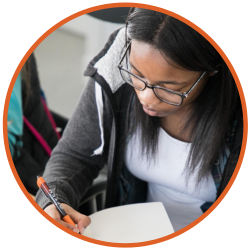
3) New study reveals postsecondary aspirations
2022 saw the culmination of a three-year project at WA STEM that looked at student enrollment in dual credit courses, student aspirations for after high school as well as teachers’ and administrators’ perceptions. The report, High School to Postsecondary: Improving Outcomes through Inclusive School-based Inquiry, was released in November and is the jumping off point for expanding this research into 23 more schools across the state in the coming year. We are excited about how this research can improve access to postsecondary opportunities for students of color, girls and students in rural areas and those experiencing poverty.
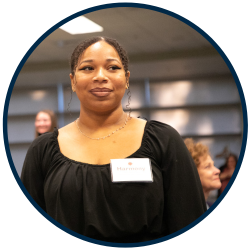
4) Rising Stars shine bright at Summit
As their names rang out in the crowded banquet hall, eleven high school students–our 2022 Rising Star awardees–rose to their feet. Each of these young women journeyed from around the state to tour Microsoft’s campus in Redmond and be recognized at our Summit luncheon. This moment of recognition – parents beaming with pride, the entire room swelling with applause – was certainly well-earned. These young women have worked hard to pursue their passions in STEM!
Take Christine Zhang, who is developing a plan to bring computer science education to the entire Olympia School District. And then there’s Estefany Pelayo-Mata, who is leading the charge to boost Latinx representation in Yakima-area bone marrow registries. And when the pandemic side-lined her school’s competitive robotics season, Eliza Dawley and her teammates pivoted to teaching kids in the Spokane area how to code. Taken in aggregate, these young women are math enthusiasts, citizen scientists, and active community members. We’re so proud of them – and so excited to see what they will accomplish! Read more about what it takes to succeed as a Rising Star.
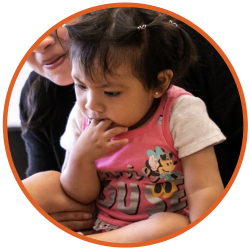
5) Family Friendly Workplace gains momentum
WA STEM knows that preparation for school and life starts early and relies on having access to quality child care. But even before the pandemic, finding it was a problem: in 2019, nearly half of all parents in Washington were kept out of the workforce because of child care issues. And since then, 16% of providers have closed, often because of workforce issues, which costs the state billions in economic growth.
WA STEM works on the systems-level, which means looking at root causes and working across sectors to find solutions. In 2022, together in partnership with the Department of Commerce, we met with child care advocates and employers across the state. What they told us about policies and solutions will shape our new Family Friendly Workplace campaign in 2023. Spoiler Alert: in addition to more flexible leave and work schedules, new business partnerships with childcare providers are needed, as well as significant investment in the child care workforce.
Stay tuned for more in 2023 as we develop innovative solutions to support equitable access to quality child care — a top priority of working families and their employers—no matter where you live.